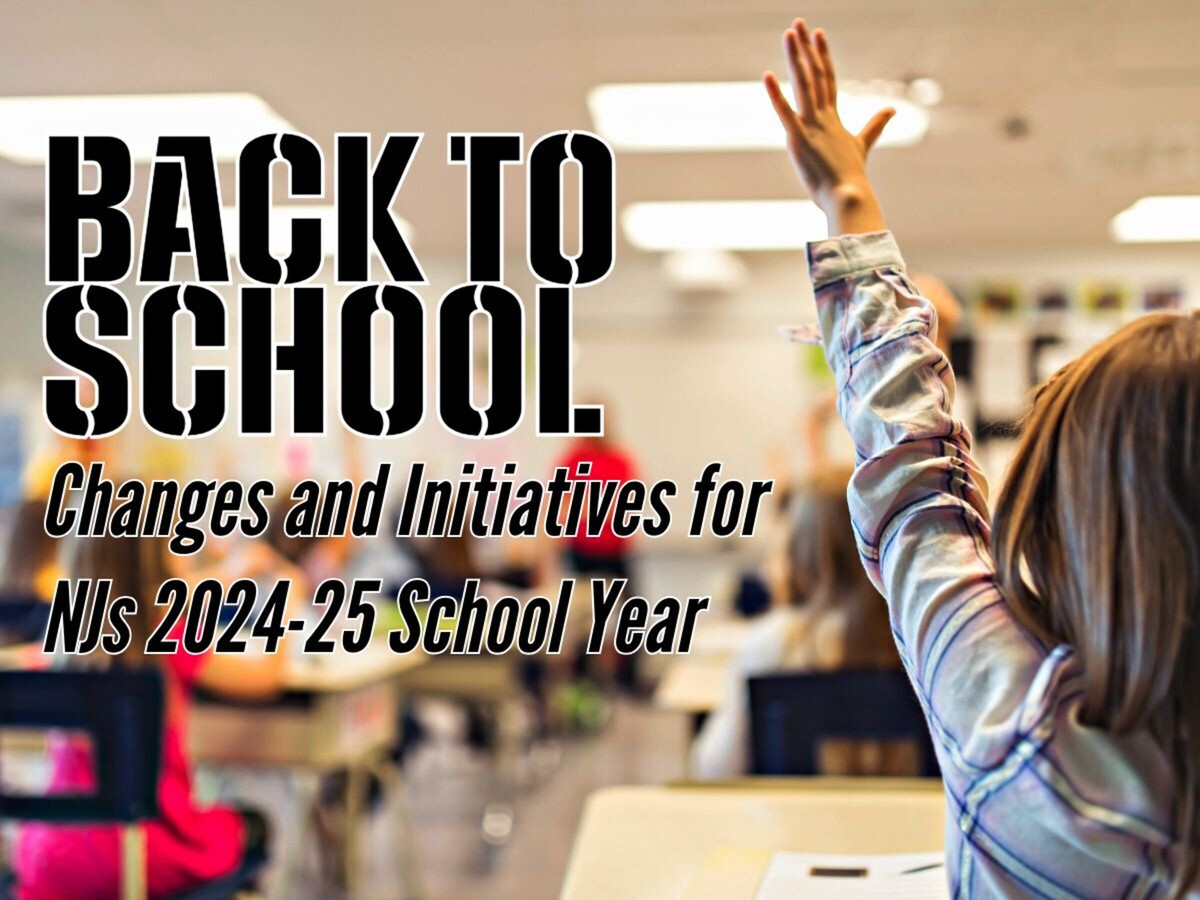Image


MORRISTOWN, N.J. - As students across New Jersey prepare for the start of the 2024-2025 school year, the New Jersey Department of Education (NJDOE) has rolled out several significant updates to programs and initiatives that will shape the academic experience this year. From major revisions in literacy standards to historic funding for schools, these changes aim to support students, teachers, and families in navigating the evolving educational landscape.
One of the most substantial changes this year is the revision of the New Jersey Student Learning Standards for English Language Arts. These new standards, set to be implemented in September, emphasize a blend of innovative, evidence-based literacy instruction alongside traditional phonics methods. This shift aims to address gaps in literacy instruction and improve reading skills among students, particularly those impacted by learning disruptions during the pandemic.
In addition to these standards, the NJDOE’s High Impact Tutoring grant programs will continue to offer targeted support to students, particularly in math and literacy. Over 42,500 students across nearly 300 districts have already benefited from this initiative, which focuses on providing frequent, small-group tutoring sessions. The program, especially critical for elementary students who struggled with literacy during the pandemic, pairs highly qualified tutors with teachers to ensure consistent and effective instruction.
This academic year will see an expansion in technology education, with a particular emphasis on computer science and artificial intelligence (AI). The NJDOE is providing $1.8 million in grants to 27 high schools to incorporate advanced computer science courses, such as cybersecurity and AI, into their curricula. Additionally, free professional training for educators will be offered through three regional Computer Science Learning Hubs, aiming to improve the quality of computer science instruction statewide.
Artificial intelligence is also set to play a larger role in New Jersey classrooms. With $1.5 million allocated for "AI in Education" and "AI Career and Technical Education Expansion Grants," schools will introduce AI-focused courses and enhance students' information literacy. The NJDOE has also released new AI resources to help educators understand and integrate AI into their teaching, preparing students for a future where AI-related skills are increasingly valuable.
The 2024-2025 school year will see an expansion of high-quality preschool programs, supported by a $1.2 billion allocation in the state budget—an increase of $124 million from the previous year. This funding includes $20 million earmarked for expanding preschool programs into new districts, reflecting the state’s commitment to providing early education opportunities. Since Governor Murphy took office, state-funded preschool programs have been extended to an additional 211 districts, opening up more than 14,000 seats for children across the state.
Mental health continues to be a focal point in New Jersey’s education policy. The NJDOE is expanding the Enhancing School-based Mental Health program, in partnership with Rutgers University, to help 50 schools strengthen their mental health services. This initiative includes increasing the number of school psychologists, counselors, and social workers, with 69 additional mental health professionals already hired. More than 11,000 students in high-needs communities are receiving services through these programs.
Further supporting student well-being, the New Jersey Statewide Student Support Services (NJ4S) network will continue to offer tiered mental health services across the state. This model provides universal support for all students, with additional services available for those in middle and high school.
Additionally, recent legislation has expanded eligibility for free school lunches and breakfasts, making over 60,000 New Jersey families newly eligible for these benefits. This move aims to alleviate food insecurity and ensure that all students have access to nutritious meals during the school day.
To support educators, the NJDOE is implementing the Teacher Climate and Culture Innovation Grant Program, which aims to help schools reclaim teacher time by reducing administrative burdens. This program will allow teachers to focus more on instruction by streamlining operations and cutting down on non-teaching tasks. Schools participating in this initiative will develop best practices that could be adopted statewide.
In terms of curriculum, the NJDOE, under the guidance of First Lady Tammy Murphy, is continuing its emphasis on climate change education. New grants have been established to support interdisciplinary learning units and community resilience projects, such as creating rain gardens and restoring native plant species. Additionally, free training on climate change will be offered to teachers through partnerships with four New Jersey universities.
Moreover, new legislation permits students in grades six through twelve to take one State-excused absence annually to participate in civic events, reflecting an increased focus on civic engagement.
This school year marks a significant milestone in state funding, with New Jersey fully funding its state-aid formula for the first time under the School Funding Reform Act of 2008. The Fiscal Year 2025 State budget includes an additional $908 million for K-12 education, bringing total state education aid to nearly $12.9 billion. This represents 24% of the entire state budget and is part of the final phase of a seven-year plan under S2, a 2018 law designed to correct funding inequities across districts.
As the 2024-2025 school year begins, these initiatives reflect New Jersey’s commitment to advancing education, supporting students’ mental health, and providing resources that equip both students and educators for success in an increasingly complex world.